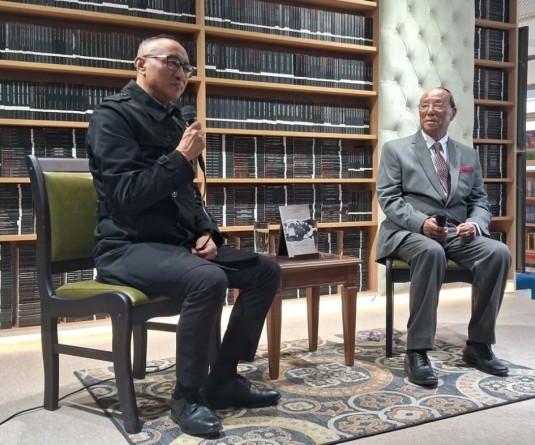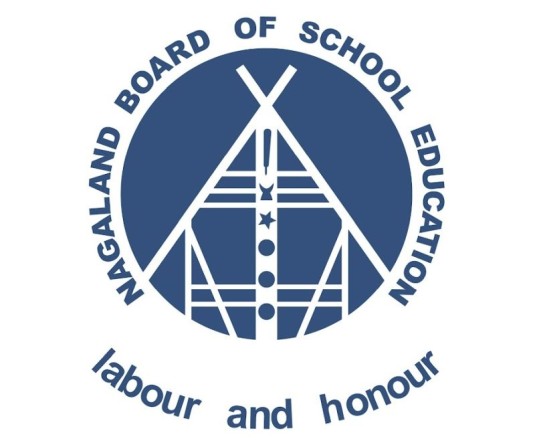Minister for Tourism & Higher Education, Temjen Imna Along (3rd from R), Chief Secretary of Nagaland, Dr. J. Alam, IAS (2nd from R), Kesonyü Yhome, IAS, Commissioner and Secretary to Chief Minister of Nagaland (2nd from L), Jaxay Shah, Chairperson, Quality Council of India (QCI) (3rd from L), Chakravarthy T. Kannan, Secretary General, Quality Council of India (QCI) (R) and Hemgauri Hemant Bhandari, Chief Advisor, QCI (L) during the Gunvatta Sankalp Nagaland at Hotel Vivor, Kohima on February 27.

Morung Express News
Kohima | February 27
Nagaland has the “dubious distinction of being one of the worst-performing states” when it comes to rural roads, said Kesonyü Yhome, IAS, commissioner and secretary to the chief minister of Nagaland, on February 27.
He was speaking at the Gunvatta Sankalp Nagaland—“Nurturing Quality, Driving Growth.” The initiative, led by the Quality Council of India (QCI), aims to support the state’s efforts in promoting quality-led growth across key sectors, including education and skilling, healthcare, MSME industries, tourism and culture, and quality in governance through monitoring and evaluation. The event was held at Hotel Vivor on February 27.
Stating that rankings are largely based on the performance of companies and firms dealing with national highways, Yhome cited the SP72-2015, which says, “The shoulder of roads, the material should normally be of sub-base quality, compacted to a thickness of 100 mm.”
He further noted, “The sub-base materials confirming to clause 401 of the NORB specifications are granular sub-base, stabilized soil sub-base, marginal aggregates and industrial waste.” However, he pointed out that “when it comes to sanctioning, the sanctioning authority has never sanctioned as per the specifications, but only urgent shoulder is sanctioned.”
The sanctioning authority, he said, approves an average of only two culverts per kilometer, whereas, according to the “Hill Road Manual” (IRC SP48-2023), eight to 10 culverts should be provided to manage runoff from hillsides to valley sides. Additionally, he emphasized the need for sub-soil drainage systems in sections where changes in soil moisture content could affect pavement stability.
Since no such provisions are sanctioned, he said, the pavement often fails. He also warned that “landslides are dangerous, disruptive to the development and costly to repair.” He stressed that “acceptable values for probability of failure can be adopted based on the consequences of failure, hence they should be accurately assessed.”
Yhome also highlighted that in sanctioning, “only random rubble (RR) masonry wall or coarsed random saw masonry wall are sanctioned at the rate of 30 to 40 running meters per kilometer of road.” He questioned why, despite the existence of IRC guidelines, cost-saving appears to be the primary motivation in sanctioning. “We are wondering when these IRC guidelines are going to be used and adopted,” he said.
Challenging the QCI to conduct a case study on any rural road sector in Nagaland to determine why roads are failing, he assured full support from the state. However, he urged QCI to undertake the study at its own expense, stating, “As a third party, you can give an independent mutual view and take up this course in the ministry, so that we can collectively and collaboratively try and make development a better network.”
‘The quality of Nagaland is the common people of Nagaland’
Tourism and Higher Education Minister Temjen Imna Along described Nagaland as “a land of villages” with over 2,300 villages striving to live, work, and build together despite comprising 17 tribes and many non-Nagas. He said, “Our culture and our heritage is our brand.”
He emphasized that the quality of Nagaland lies in its people and their aspirations, citing villages known for their agricultural produce—Mima for honey, Aliba for cucumber, Jakhama for potatoes, and Thipuzu for persimmon and kiwi. “These,” he said, “are the brand of Nagaland.” Acknowledging existing challenges, he stated that not everything can be resolved immediately but affirmed that the people of Nagaland can be “quality people for the rest of the country to enjoy and to take the pleasure of the strong human resource qualities of the state of Nagaland.”
‘Quality & innovation, focus of the government’
Nagaland Chief Secretary Dr. J. Alam, IAS, said, “Quality and innovation are the two buzzwords these days, and are the focus of the government,” adding, “When we become conscious of quality, that means we are reaching the next stage of development.”
He highlighted the role of the Quality Council of India in fostering this awareness and expressed hope that QCI’s interaction with various sectors in Nagaland would provide valuable insights and a roadmap for future development.
Referring to the state’s quality control board, which oversees the quality of roads and buildings, Alam acknowledged that “we have not perhaps been able to achieve our objective by that board.” Stressing the need for capacity building, he said efforts should be directed at training not just implementers but also those responsible for assessing quality.
In the education and health sectors, he pointed out ongoing initiatives, including a universal health insurance system in Nagaland. He also emphasized the agricultural sector’s potential and efforts to promote the state as an organic farming hub.
With abundant natural resources such as minerals, petroleum, and natural gas, he called for QCI’s support in accelerating development in these areas.
Jaxay Shah, chairperson of QCI, said, “Our role at QCI is not to tell you what the quality is, but to support the state’s existing efforts and amplify them.” He noted that QCI has worked extensively with the central government in shaping policies and raising quality consciousness, but stressed that “the greatest impact of quality initiatives happens at the state level where governance meets the grassroots.”
Expressing optimism, Shah said, “Together we would ensure that Nagaland’s success story becomes a global benchmark for excellence.” He also hoped that discussions at the event would lead to new pathways for embedding quality in Nagaland’s development.
While the state is already on a path of community-driven progress, cultural excellence, and sustainability, he assured, “QCI is here to walk this journey with you, not to dictate, but to support, to collaborate and to ensure that Nagaland’s unique identity and stance are amplified through quality-driven initiatives.”
Earlier, Chakravarthy T. Kannan, secretary general of QCI, gave the opening remarks, while Hemgauri Hemant Bhandari, chief advisor of QCI, proposed the vote of thanks.





